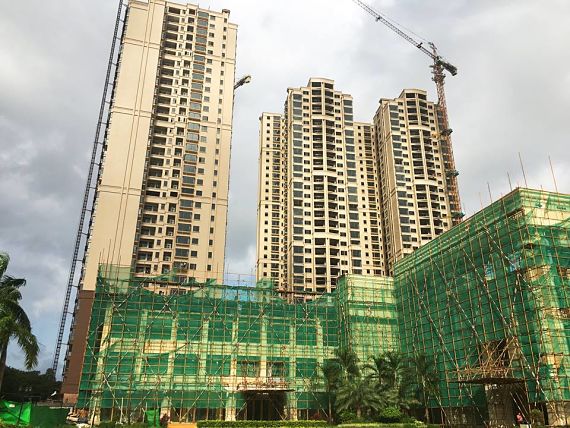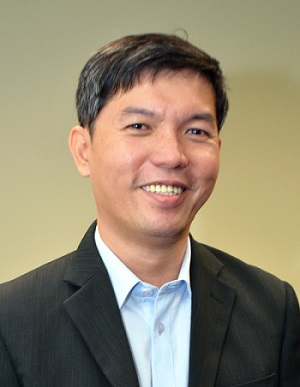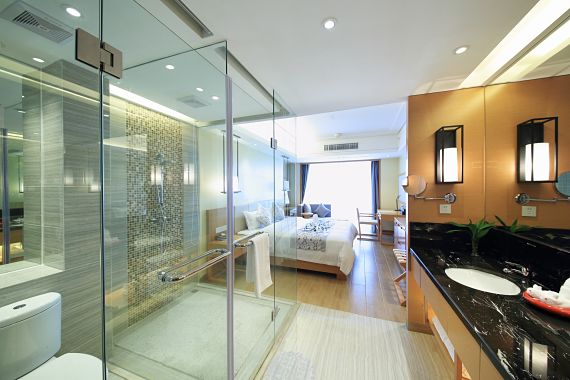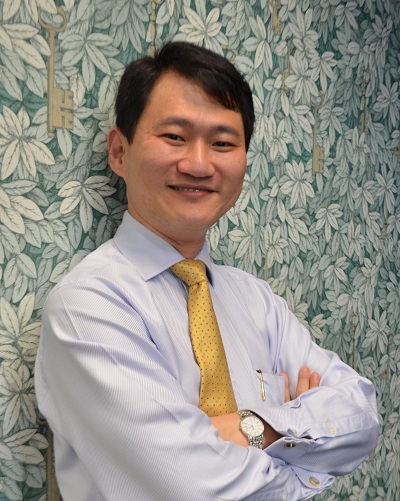|
Q: How is the progress of your Golden City development?
Tan Thiam Hee: After the new Myanmar government came on board, the Yangon City Development Committee stopped many construction projects. Golden City is one of the few projects allowed to proceed.
During the last few months, sales of Golden City units picked up when buyers of other residential projects, which had problems in obtaining all the necessary regulatory approvals, switched to our project.
There were even cases where the government stopped entire projects and told the developers to build somewhere else because the projects were located on land that had not been approved for such development.
 Golden City Phase I as at August 2016. (Photo: Company) Golden City Phase I as at August 2016. (Photo: Company)
Phase I of Golden City is ready for handover to home buyers. Few buildings in Yangon are as tall as Golden City. The progress of our development can be spotted from anywhere in the city.
When people see that the building is already completed, they gain confidence in our project. Home buyers who make payment can take delivery of the units within 2 months (if the units are under Phase I).
Q: How has the new government changed the macroeconomic environment in Myanmar?
Tan Thiam Hee: In Myanmar, it is very difficult to raise money for a residential property development project because everything needs to be equity funded.

“The Myanmar kyat is a very expensive currency to hedge against.”
- Joseph Lim
CFO
Cedar Strategic
(NextInsight file photo)
|
The developers of Golden City were impressive in being able to start the project with minimal external funding. The difficult part is over and the project is now at the stage of being self-funded.
Banks and fund managers we talk to are showing much more interest in Yangon today compared to 4 to 5 years ago. For example, Fullerton Financial Holdings, a wholly-owned subsidiary of Temasek Holdings, has set up a microfinancing unit in Yangon and are very keen to get a bank licence there.
Many foreign banks have set up offices and are very keen to extend loans. However, they only extend up to US$15 million per company within Yangon due to capital adequacy and other requirements.
Foreign banks finance commercial property developments but do not finance residential projects. It is not possible to get financing from local banks because they do not have sufficient cash liquidity.
| Stock price |
0.3c |
| 52-week range |
0.2 -0.4c |
| Market cap |
S$46.65m |
| Price Earnings |
12.6 x |
| Price-Book |
1.16 x |
| Dividend yield |
- |
| Source: SGX StockFacts |
However, local banks are able to extend mortgage financing. So, we need a mixture of both local and foreign bank financing.
The Golden City project had a US$15 million loan from ICBC that is backed by local guarantees. We can further expand by tapping into Singapore banks there if we need to.
Given the current stage of development of the country, we will limit our projects to Yangon and Mandalay.
Q: The interest rate in Myanmar appears to be very high. How does this affect mortgage loans taken by home buyers?
Tan Thiam Hee: Banks do not extend mortgage loans to local home buyers. The buyers either pay upfront 100% in cash, or pay by installments under a loan that is administered by the developer for a term of 2 to 4 years. We do not transfer title deeds before full payment is made. |
 Room view at Cedar Strategic's hotel in Daya Bay, Huizhou city, Guangdong province, PRC (Photo: Company)
Room view at Cedar Strategic's hotel in Daya Bay, Huizhou city, Guangdong province, PRC (Photo: Company)









